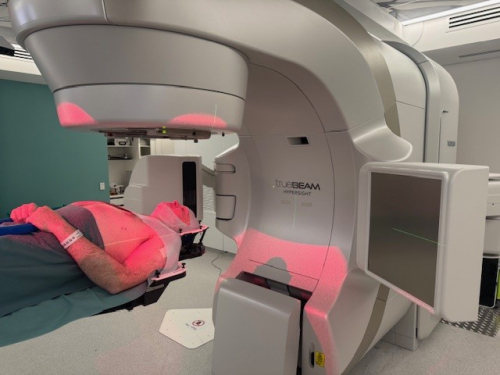Fresh hope in fight against antibiotic-resistant superbugs

The Alfred is offering patients with antibiotic-resistant super bugs fresh hope with a unique therapy first discovered more than a century ago.
The Alfred is the first health service in Victoria to begin using the treatment known as phage therapy, which involves utilising harmless viruses – known as bacteriophages or phages – to kill germs in cases where traditional antibiotics have failed.
Alfred Health Infectious Diseases director Professor Anton Peleg said the program began at the end of last year.
“We’ve already developed some phages which have been used to treat people who are severely ill with antibiotic-resistant infections… including patients with cystic fibrosis, who have endured years of chronic lung infections,” Professor Peleg said.
“These are patients with severe bacterial infections that are either life-threatening, or limb threatening, or function threatening, where they don’t have any other options left.
Phages are viruses that have naturally evolved to prey on harmful bacteria, but the emergence of antibiotics meant it’s been used sparingly.
Now with the rise of bacterial resistance to antibiotics, it’s being viewed as a potential alternative.
“We desperately need novel approaches to attack superbugs, approaches that are different to existing traditional antibiotics, Prof Peleg said.
“The really interesting thing about phages is that they’re everywhere – in fact there are billions of different bacteria killing viruses in our natural environment – found in river systems, soil and sewage.”
The Alfred has an onsite phage lab, where staff scour environmental sources, identify phages, which are then tested for their activity levels with a combination of antibiotics.
“We’ve been storing the most common bacteria causing infection at The Alfred and are looking for phage that have killing activity against those bacteria to develop a phage biobank,” Prof Peleg said.
“This allows us to have a cocktail of multiple phages, prepared to use for future patients with bacterial infections.”


